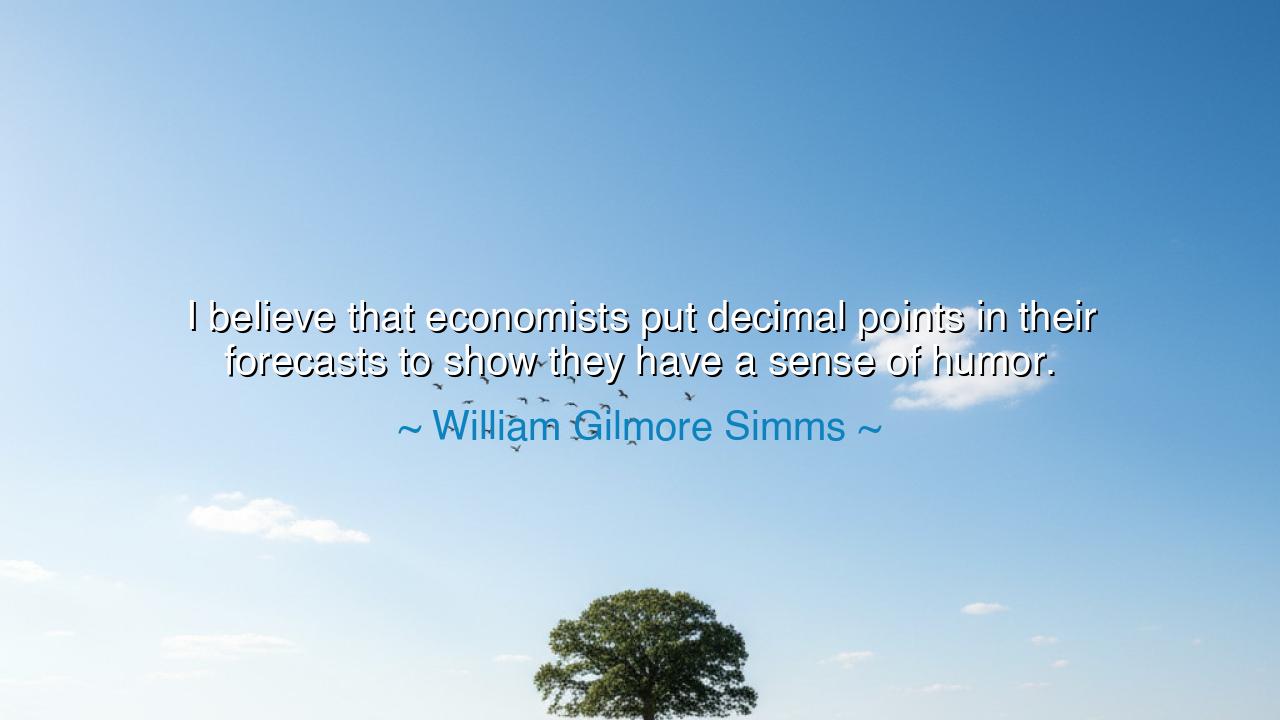
I believe that economists put decimal points in their forecasts
I believe that economists put decimal points in their forecasts to show they have a sense of humor.






Host:
The rain had that steady, hypnotic rhythm — the kind that made the city pulse like a metronome. In a dimly lit café near the financial district, the smell of espresso mingled with the faint scent of wet asphalt and inked newspaper.
On one wall hung a large clock, its second hand twitching like it was trying to run ahead of time itself.
Jack sat by the window, tie loosened, sleeves rolled, his laptop open — the glow of spreadsheets painting his face in tired light. Jeeny arrived late, shaking the rain from her coat, her eyes bright and her smile mischievous, the kind of presence that could warm even this sterile, caffeine-soaked corner of capitalism.
She dropped her umbrella, sat down across from him, and without preamble, quoted something that made him look up.
Jeeny:
(smirking as she pulls off her gloves)
“William Gilmore Simms once said, ‘I believe that economists put decimal points in their forecasts to show they have a sense of humor.’”
(She leans back, amused.)
“Isn’t that deliciously cruel? The man saw through the theater of precision before algorithms even existed.”
Jack:
(snorts, rubbing his temples) “Cruel? No. That’s mercy disguised as mockery. At least he admitted the absurdity of pretending to quantify chaos.”
Jeeny:
(grinning) “You say that like you’ve spent your life wrestling decimal points.”
Jack:
(deadpan) “No, just the people who believe in them.”
Jeeny:
(laughing) “Then you’re one decimal short of optimism.”
Host:
The waiter passed, setting down two coffees, their steam spiraling into the air like fleeting truths. The rain outside turned to mist, and the light through the window flickered — an LED sign across the street blinking numbers no one believed but everyone obeyed.
Jeeny:
(stirring her coffee) “What I love about that quote is how humor becomes rebellion. When you can laugh at your own equations, you’ve already freed yourself from them.”
Jack:
(smiling faintly) “Or maybe it’s resignation. The joke’s just a sigh with better timing. You realize the world doesn’t fit your model, so you make fun of your model.”
Jeeny:
(nodding thoughtfully) “That’s true. But I think Simms wasn’t mocking economists. He was mocking our hunger for certainty. We want numbers to soothe us, like bedtime stories with bar graphs.”
Jack:
(sips his coffee, amused) “And the economists are the modern-day priests — translating uncertainty into decimals.”
Jeeny:
(teasingly) “And you’re the apostate, I presume?”
Jack:
(grinning) “Only on weekdays.”
Host:
The rain lightened, turning the window glass into a mirror. Their reflections sat side by side — one carved from irony, the other from belief. The faint sound of jazz played from the corner speaker — something improvisational, restless, like the economy itself.
Jeeny:
(leaning forward) “You know, that’s why I love humor — it’s the only thing honest enough to handle failure. The decimal point, the smile — they both say, ‘We tried, and that’s enough.’”
Jack:
(half-smiling) “So you’re saying the joke is the truest part of the forecast.”
Jeeny:
(softly) “Exactly. Because humor is what happens when truth and humility finally shake hands.”
Jack:
(pausing, thoughtful) “That’s poetic. And slightly terrifying.”
Jeeny:
(smiling knowingly) “Only to people who still think they can predict everything.”
Host:
The clock ticked louder, like it wanted to join the argument. The rain stopped, replaced by the faint hiss of tires on wet streets. Jack looked out the window — the world outside blinking neon, transactions happening faster than thoughts.
He took a deep breath, the kind that sounds like a question.
Jack:
“You ever think we make predictions not to be right, but to pretend we’re not afraid?”
Jeeny:
(nods slowly) “Of course. That’s the comedy of it all — pretending we can measure fate.”
Jack:
(chuckles) “So we use humor to soften the arrogance of our guessing.”
Jeeny:
(smiles gently) “Exactly. The moment you laugh at your own precision, you become human again.”
Jack:
(murmuring) “Maybe that’s why the decimal point exists — to remind us how small we are, even in our certainty.”
Jeeny:
(softly) “And how funny it is that we keep trying anyway.”
Host:
The café light flickered again. Outside, a man in a suit dashed across the street, clutching papers — his briefcase swinging like a pendulum of panic. The two of them watched, quiet, thoughtful.
Jeeny broke the silence first, her voice low and warm, like a smile in the dark.
Jeeny:
“You know, Jack... humor is the decimal in life. It doesn’t change the number, but it makes it precise enough to matter.”
Jack:
(grinning) “That’s good. You should put that in your next manifesto.”
Jeeny:
(teasing) “Only if you promise to believe it.”
Jack:
(after a pause, softly) “I think I already do.”
Host:
The camera pulled back, framing them in the window glow — two figures in the middle of a city obsessed with knowing the unknowable.
Their laughter — low, genuine, and slightly weary — rose above the hum of espresso machines and tapping keyboards, softening the math of existence.
Outside, the clock struck nine, and the decimal of a second slipped by unnoticed — a fraction of time lost, or perhaps gained.
And as their laughter faded into the night, William Gilmore Simms’s words lingered like the aftertaste of dark coffee:
that even in the cold logic of prediction,
there hides a flicker of humor —
the quiet, stubborn reminder
that behind every formula,
there’s still a human heart
guessing beautifully at the truth.






AAdministratorAdministrator
Welcome, honored guests. Please leave a comment, we will respond soon